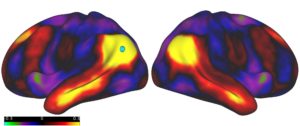The field of behavioral neuroscience has a long and rich history at Washington University. From the Nobel Prize winning insights of Rita Levi-Montalcini and Viktor Hamburger on the development of the nervous system, through life-course research by Lee Robins on the origins of deviant child behavior, to identification of inherited influences on personality, alcoholism, and major mental disorders by distinguished members of the Department of Psychiatry including Robert Cloninger, Andrew Heath, Barbara Geller, Richard Todd, and Theodore Reich; Washington University remains among the preeminent institutions for brain and behavioral science research.
Through years of exploration, the field of developmental psychopathology has evolved and encompassed the diverse sub-disciplines of infant social and emotional development, pediatric brain imaging, quantitative trait analysis, and behavioral genetics, all of which are distinct strengths of the Division of Child and Adolescent Psychiatry.

This research has resulted in major contributions by our faculty to the identification and treatment of early mood disorders in childhood, methods for imaging the developing human brain, and an understanding of the genetic structure of neuropsychiatric syndromes of childhood.
Moreover, collaborative and interdisciplinary research, a hallmark of Washington University, has brought behavioral neuroscience into an increasing number of research groups throughout the institution.
The Division of Child and Adolescent Psychiatry is a platform for investigators, donors, clinicians, and families to lead discovery together and advance the mental health of children regionally and across the globe.